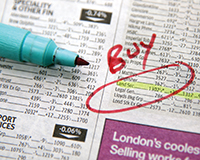
When faced with the opportunity to acquire either the shares of a commercial property investment company or the property itself what do you do? There are a number of tax issues that should be considered in either case.
Acquiring the company
The first thought for most purchasers is the stamp duty saving. If the company being acquired is a UK company, then stamp duty will only be payable at 0.5% on the sum paid for the shares, as opposed to stamp duty land tax (“SDLT”) at up to 4% if the property is acquired.
This can be a big saving, which could be increased if the company being acquired is a non-UK company, in which case no stamp duty would be payable on the acquisition of the relevant shares.
Acquiring the shares in the company may not be suitable for every investor as the presence of the company could add an additional layer of taxation.
For example, tax-exempt investors such as pension funds are unlikely to want to own a UK company, as this would give rise to tax leakage for them (such as on rental income) where otherwise it may not occur if they owned the asset directly or via a tax-transparent entity such as a partnership.
Another big issue typically considered when acquiring shares is the fact that buying the company entails buying not only all the assets, but also all of the liabilities of the company – including its tax liabilities.
Exposure to any pre-completion (and some post-completion) tax liabilities can typically be covered off in the share sale agreement by way of warranties and indemnities, but this does leave the purchaser exposed to having to pursue the seller should such a liability arise, and then hoping that the seller has sufficient funds to settle any such liability.
Share sale transactions are often more complicated than straight property purchases and, consequently, not only are the professional costs typically greater but so also is the management time of the respective parties.
In addition to the increased transaction costs, VAT needs to be considered. VAT is unlikely to be recoverable on professional fees incurred in connection with the purchase of shares and, at 20%, this could be a sizeable cost. No VAT should, however, be charged by a seller on a sale of shares (which is an exempt supply for VAT purposes) and this will offer some costs savings for a buyer.
One point that buyers often fail to consider is the fact that buying the shares will not, for capital gains tax or corporation tax purposes, alter the base cost of the property.
If the target company was at any point to sell on the property, the price paid by the buyer for the shares in the target would be immaterial. On a sale of the property the seller could suffer a large latent gains tax charge (currently at 20%) as the difference between the sale price achieved and its base cost in the property (plus any allowable expenses) could be significant, particularly if the selling company has owned the property for some time.
| SDLT | VAT on purchase price | VAT on costs | Tax liabilities | Property base cost | Interest on debt funding | |
|---|---|---|---|---|---|---|
| Share acquisition | Nil, but 0.5% stamp duty if UK shares acquired. No SDLT or stamp duty if non-UK shares acquired. | None. | Likely to be irrecoverable. | Will transfer subject to pre-completion indemnities and warranties. | Property base cost unaffected by purchase. | Unlikely to be tax deductible for individuals or non-UK companies. Should be tax deductible for UK companies. |
| Property acquisition | Up to 4%. | Yes, if seller has opted to tax the property and the sale is not a transfer of a going concern. | Could be recoverable (but SDLT incurred on VAT a real cost). | Tax liabilities will not typically transfer. | Base cost uplifted to reflect price paid plus other incidental costs of acquisition. | Should be tax deductible on arm’s-length borrowing. |
If the buyer’s intention is just for the target company to retain the property or for the buyer to possibly sell on the shares of the target at some point in the future, this tax issue will not be relevant.
If debt funding is required to acquire the shares then, if the buyer is an individual or a non-UK company, it is unlikely that tax relief will be available for any interest paid on borrowings used to fund the purchase. UK corporate purchasers should not encounter this problem and should generally be entitled to tax relief for interest paid.
Acquiring the shares in a company can be tax efficient but before doing so the buyer should consider what it intends to do with the target company and the property owned by it. The irrecoverable VAT costs and possible latent capital gains tax/corporation tax issues could prove costly if the ultimate intention is for the target company to dispose of the property.
Acquiring the property
SDLT at up to 4% will be payable, which can be a significant cost on properties that cost several million pounds and can cause many buyers to consider a share purchase.
Any SDLT payable will be added to the base cost of the property and will therefore go some way to reducing any future gain made on the sale of the property and any capital gains tax/corporation tax (for those investors subject to UK tax).
If the property interest being acquired is a lease (by way of an assignment), it is possible that, in addition to any SDLT payable on any premium paid, SDLT could in certain circumstances also be payable on any rent payable under the lease for the remainder of its duration after it has been acquired.
This is a particularly nasty expense waiting to catch unsuspecting buyers, although it should be flushed out if the commercial property standard enquiries are answered correctly.
Acquiring the property instead of
the shares will allow the buyer to leave behind any liabilities of the seller. This should avoid the need for voluminous warranties and indemnities in the contractual documentation and reduce
the time spent negotiating such documents.
VAT could be payable, depending on whether the seller has opted to tax the property and whether the sale can be a transfer of a going concern. If VAT is payable this may only be a cashflow cost albeit, if significant, it could give rise to further borrowing and bank charges to fund it. Such cashflow costs can be mitigated or avoided if the seller and buyer agree to co-operate with the timing of any VAT payments.
Even if the VAT is recoverable, the real downside is that SDLT will be payable on any VAT charged (yes, a tax on a tax) and SDLT is not recoverable from HM Revenue & Customs.
Any VAT incurred by the buyer in connection with the acquisition should be recoverable from HMRC, assuming the buyer has opted to tax the property and that option has not been disapplied.
Acquiring the property as opposed to shares will give the buyer a base cost in the property at least equal to the sum paid for it (including any SDLT paid on the purchase price and professional fees). This should help to reduce any gains made on any future sale of the property and consequently any capital gains tax/corporation tax payable. This of course will be a non-issue for any non-UK company/individual that does not pay UK capital gains tax/corporation tax.
If funding is required to purchase the property, which is often the case, then regardless of whether the buyer is an individual, UK company or non-UK company it should be entitled to a tax deduction against any rental profits for interest paid on arm’s-length borrowing, which will help to reduce any tax payable on such profits.
Buying the property can be more tax efficient than buying the shares in the company owning the property but, again, consideration needs to be given to the buyer’s ultimate intention for the property to ensure there is no inadvertent tax leakage.
Alex Barnes is a partner at Irwin Mitchell LLP






